The procurement of raw materials and energy takes place on the basis of real production needs, to maximize the efficiency of the process. The computerized management of the entire production cycle allows you to monitor the use of resources and improve traceability, which is also essential for ensuring food safety. The certifications obtained for quality (ISO 9001), the environment (ISO 14001) and food safety (IFS) confirm the efficiency of the integrated management system adopted.
The roasting department of the Caivano plant processes the raw coffee supplied to currently produce approx. 28,000 tons of coffee every year. In addition to the coffee intended for consumption, two by-products are recovered from raw coffee:
- the "silverskin", or the films that wrap the coffee bean
- undersized powders
These materials are a resource, intended to be used for the production of compost or manure. Furthermore, the coffee jute sacks (burlaps) are sold and used in agriculture for mulching.
From over 14,000 tons of materials used for packaging primary and secondary products (over 60% is paper) about 10% becomes process waste. Almost 90% of the process waste generated is used as a resource for other consumption or production cycles. In any case, the remaining part is sent to destinations for energy recovery or controlled disposal, with possible further partial valorization.
Process numbers:
- 80% renewable raw materials
- 40% recycled in the packaging
- 65% recyclable products
The following materials are also recovered and put to new uses every year:
- Over 500 tons of silverskin
- 400 tons of jute bags
- About 60/70 tons of aluminum waste
- About 400 tons of paper and cardboard
- About 200 tons of plastic packaging
